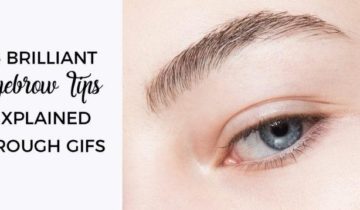Beauty sleep helps keep your body and skin healthy. But sometimes sleep is easier said than done. And even if you’re getting the recommended eight hours, are you getting the most out of that snooze time?
Eating and Diet
Always trust your doctor’s opinions, but eating right before bed should generally be avoided, as it can keep the digestive system active and prevent sleep (or good sleep). Especially avoid grains and sugars, as the rise in blood sugar will keep you awake longer and the subsequent fall may wake you up. Instead, eat a high protein snack and small piece of fruit an hour or two before bed, which helps produce tryptophan and guide it to your brain, helping you fall asleep.
Caffeine isn’t always metabolized efficiently and can impact your sleep even from a coffee in the afternoon. Alcohol might make you sleepy, but it tends to prevent deep sleep and can cause you to wake up in the middle of the night. Over-the-counter medications may also disrupt sleep.
Exercising thirty minutes a day can help you get good-quality sleep, as long as you don’t exercise too close to bedtime. Keeping a healthy weight can help prevent sleep apnea and improve the quality of your sleep.
Lights and Sound
It’s best to sleep in complete darkness, as light can interfere with your circadian rhythm. Wear a sleeping mask if you need to. Even if you get up to use the bathroom, try to avoid turning on lights if possible, because that can immediately halt your body’s melatonin production and keep you from falling back asleep.
Don’t listen to music with lyrics, as your brain will focus on the words and stay active rather than allowing you to fall into a good sleep. Consider white noise or nature sounds instead if that relaxes you.
Try to find the softest alarm possible that will still wake you up. The sudden jolt of noise and abrupt wake-up is stressful to your body.
Timing
Adrenal glands do the most recharging and gallbladders dump most toxins between 11 pm and 1 am. Being awake during this time can disrupt their process and hurt your body, so try to go to bed early. You should also try to keep your sleep schedule consistent throughout the week, meaning the same bedtime and wake-up time every day, even on the weekends. It helps your body get into a rhythm and ultimately helps you get better sleep.
Bedtime Routine
Right before bed, use the bathroom so there’s less chance you’ll wake up needing to use it in the middle of the night. Other pre-bed activities you might find helpful are writing in a journal to get out those thoughts that would otherwise keep you tossing and turning, or reading a calm book you’ve read before to make your eyes tired without keeping you turning pages past your bedtime. Put work away at least one or two hours before going to bed and avoid watching TV right before bed so your brain isn’t too stimulated and wound up.
Use your bed for sleeping and relaxing only – not to spread out on while doing work. It helps your brain associate the bed with sleeping only, so once you get into bed it knows what’s supposed to happen next. You might also consider a pre-sleep routine like meditation or aromatherapy you do every night to help your body relax and know that sleep is next on the list.
Other Tricks
How do you sleep best? What do you do to make sure you get enough sleep? Have you noticed an improvement in beauty after improving your sleeping habits? Comment and share your thoughts.


 No products in the cart.
No products in the cart.